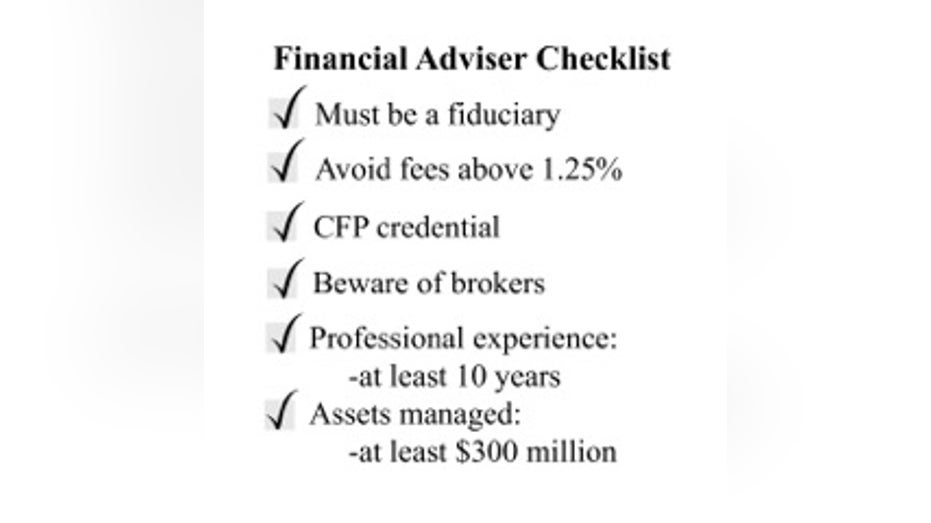Is Your Financial Advisor Conflict Free?

If you want help guiding your financial future, seeking out the assistance of a financial adviser may be a good idea. But finding the right financial adviser may be a challenge. There are more than 200,000 financial advisers in the U.S. and making the wrong choice could cost you thousands of dollars, if not more.
Analysts say the industry is plagued with conflicts of interest. Some financial advisers are brokers, meaning they probably work for an investment firm and may get financial incentives to sell the firm’s products. Other financial advisers may receive additional consulting fees from mutual fund companies if they sell certain funds to clients. Some advisers may also brand their own funds and charge clients additional fees.
Conflicts of Interest
“The common business practices among advisers are often to put people into actively managed mutual funds with excessive fees or to offer other kinds of financial products that are lucrative for the adviser but that are not valuable for the individual investor,” says Harold Pollack, a professor at the University of Chicago and author of “The Index Card.”
One way to avoid conflicts of interest is to make sure the adviser is a fiduciary or someone who is legally required to act in the best interest of the client, says Peter Mallouk of Creative Planning. Mallouk has topped Barron’s list of top independent advisers for the past three years.
“They have to act in the best interest of the client,” Mallouk says. “When you have a job, you want to choose the one that is best for you. You choose a partner in life, you want to choose the one that you think will be the best for you. Why do you lower the standard when you are handing everything you ever worked for to an adviser? I think everyone should be working with a fiduciary.”
Mallouk says it is critical for investors to do their research and ask the right questions when choosing a financial adviser. Here are some of his tips:
Find a Fiduciary
- Fees:
Avoid commissions and stick to fees. Mallouk says commissions could open the door to conflicts of interest, making fees a better alternative. He says make sure to understand each fee and how the adviser is getting paid. At most, an adviser should be making 1.25 percent. He says anything above that is a deal breaker. Keep in mind, if you invest more than $1 million, the fee could drop by as much as 40 percent.
- Competency:
Make sure the adviser is a Certified Financial Planner (CFP). CFP is a credential awarded by the CFP Board and means the adviser has passed rigorous tests on all aspects of financial planning. There are lots of industry designations but Mallouk says CFP is the main standard.
- Beware of Brokers:
Generally, avoid brokers if possible since many are tied to investment firms and may pose conflicts of interest, Mallouk says. He recommends visiting finra.org and using the BrokerCheck function to find background information and disclosures.
Financial Adviser Checklist
- Experience Matters:
Find an adviser who has the experience to handle market swings. Mallow says choose an adviser with at least 10 years of professional experience who manages at least $300 million. He also recommends investors be weary of advisers who guarantee specific annual returns.
- Hourly Approach:
Some financial advisers may shy away from investors with assets below $50,000. In this case, consider getting advice from an adviser on an hourly basis. Check out cfp.net and garrettplanningnetwork.com to find advisers in your area who charge by the hour.

- New Fiduciary Rules
In a move to protect investors, the Labor Department has drafted new rules that require advisers to be fiduciaries when giving retirement advice. They will have to disclose conflicts of interest when recommending products and act in the best interest of their clients when providing advice on individual retirement accounts. The rules, however, do not apply to taxable accounts and the new rules will not go into effect until April of 2017.
Once the rules are implemented, Pollack says individual investors may have to pay more up front whereas fees were likely hidden in the past. “It will be disruptive for people but I think in the long run, it’s a good thing. We need this industry, it needs to exist with a business model and regulatory framework that protects the ordinary investor and right now the competitive equilibrium in the industry doesn’t do that adequately,” he says.



















